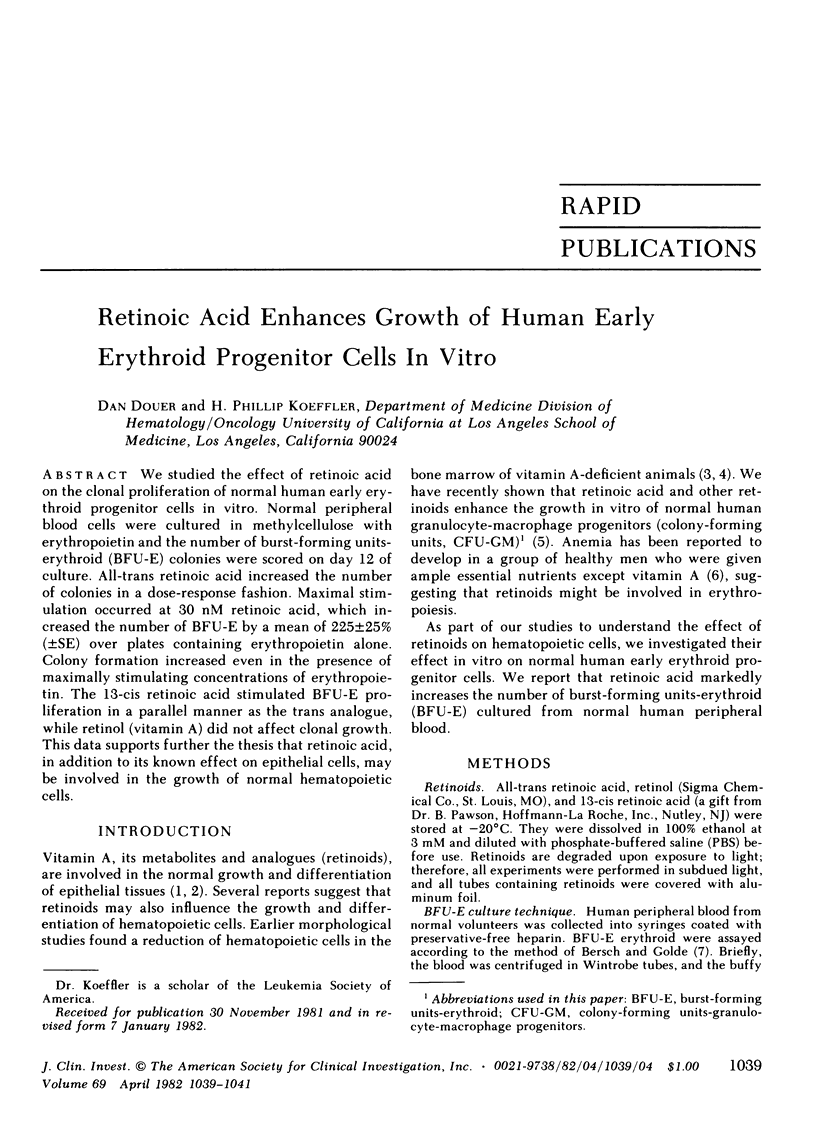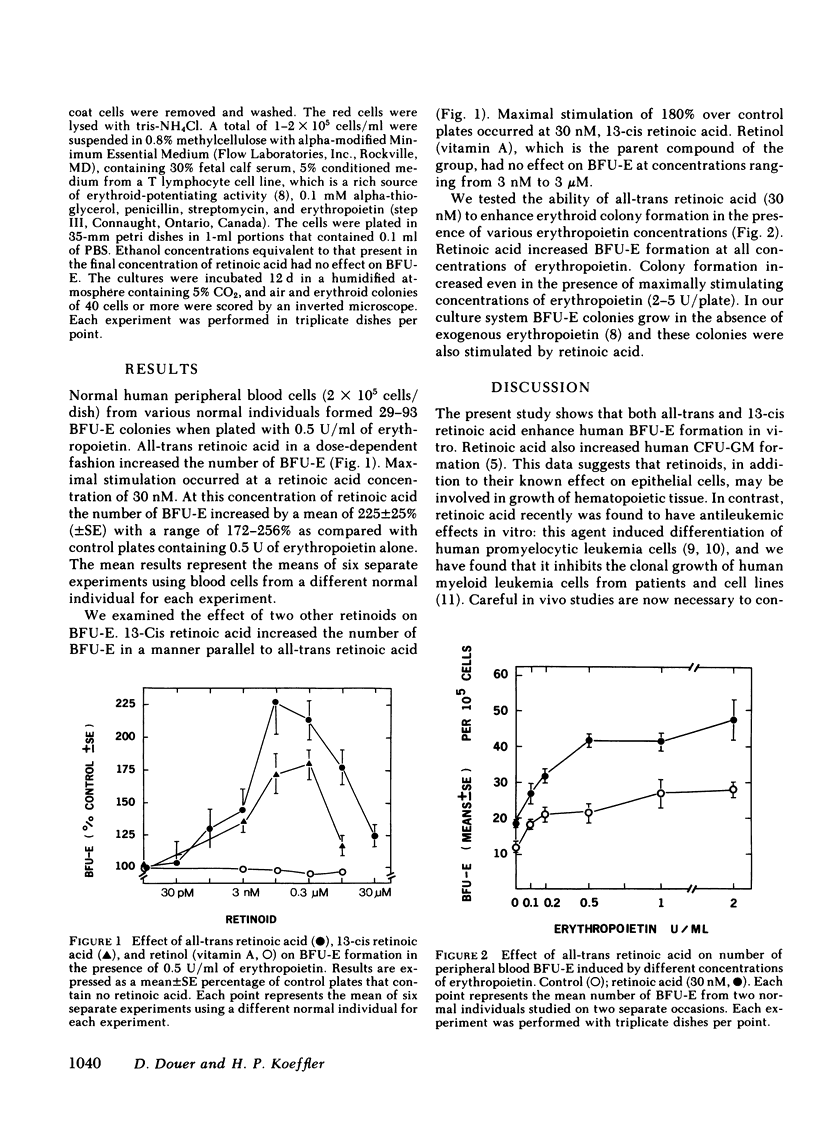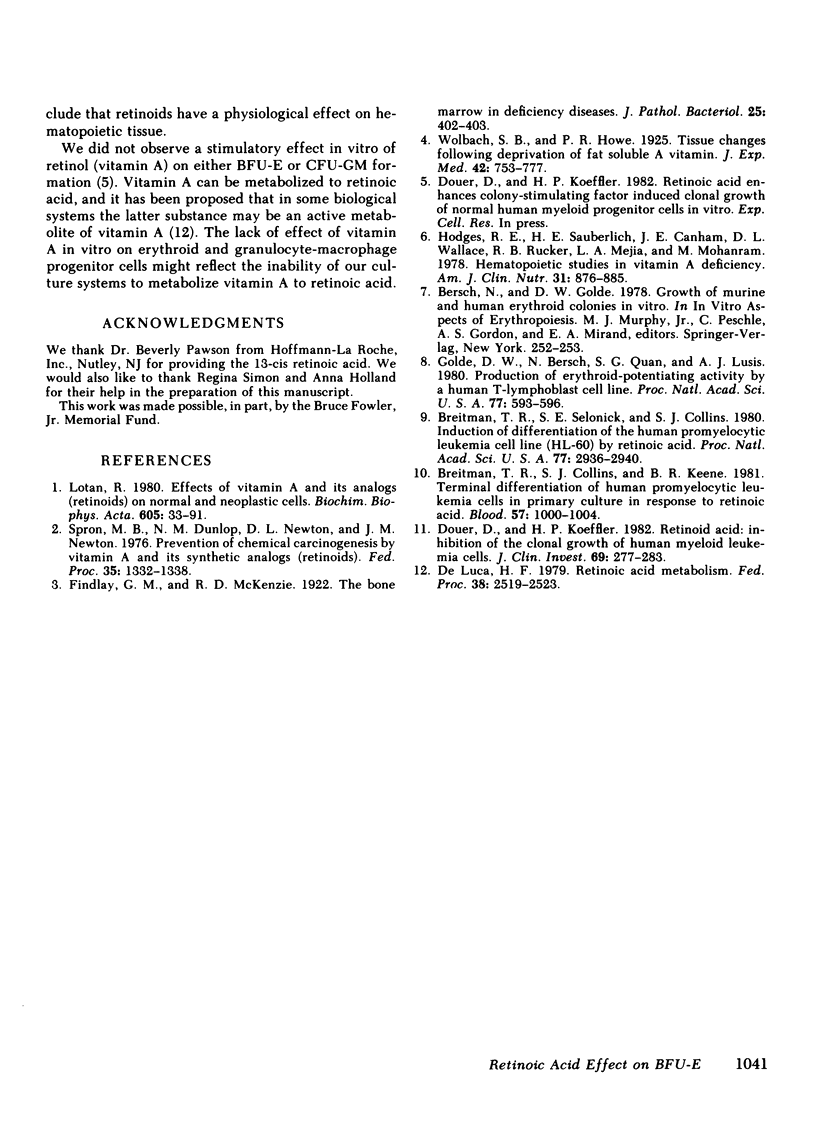Abstract
We studied the effect of retinoic acid on the clonal proliferation of normal human early erythroid progenitor cells in vitro. Normal peripheral blood cells were cultured in methylcellulose with erythropoietin and the number of burst-forming units-erythroid (BFU-E) colonies were scored on day 12 of culture. All-trans retinoic acid increased the number of colonies in a dose-response fashion. Maximal stimulation occurred at 30 nM retinoic acid, which increased the number of BFU-E by a mean of 225 +/- 25% (+/- SE) over plates containing erythropoietin alone. Colony formation increased even in the presence of maximally stimulating concentrations of erythropoietin. The 13-cis retinoic acid stimulated BFU-E proliferation in a parallel manner as the trans analogue, while retinol (vitamin A) did not affect clonal growth. This data supports further the thesis that retinoic acid, in addition to its known effect on epithelial cells, may be involved in the growth of normal hematopoietic cells.
Full text
PDF


Selected References
These references are in PubMed. This may not be the complete list of references from this article.
- Breitman T. R., Collins S. J., Keene B. R. Terminal differentiation of human promyelocytic leukemic cells in primary culture in response to retinoic acid. Blood. 1981 Jun;57(6):1000–1004. [PubMed] [Google Scholar]
- Breitman T. R., Selonick S. E., Collins S. J. Induction of differentiation of the human promyelocytic leukemia cell line (HL-60) by retinoic acid. Proc Natl Acad Sci U S A. 1980 May;77(5):2936–2940. doi: 10.1073/pnas.77.5.2936. [DOI] [PMC free article] [PubMed] [Google Scholar]
- DeLuca H. F. Retinoic acid metabolism. Fed Proc. 1979 Oct;38(11):2519–2523. [PubMed] [Google Scholar]
- Douer D., Koeffler H. P. Retinoic acid. Inhibition of the clonal growth of human myeloid leukemia cells. J Clin Invest. 1982 Feb;69(2):277–283. doi: 10.1172/JCI110450. [DOI] [PMC free article] [PubMed] [Google Scholar]
- Golde D. W., Bersch N., Quan S. G., Lusis A. J. Production of erythroid-potentiating activity by a human T-lymphoblast cell line. Proc Natl Acad Sci U S A. 1980 Jan;77(1):593–596. doi: 10.1073/pnas.77.1.593. [DOI] [PMC free article] [PubMed] [Google Scholar]
- Hodges R. E., Sauberlich H. E., Canham J. E., Wallace D. L., Rucker R. B., Mejia L. A., Mohanram M. Hematopoietic studies in vitamin A deficiency. Am J Clin Nutr. 1978 May;31(5):876–885. doi: 10.1093/ajcn/31.5.876. [DOI] [PubMed] [Google Scholar]
- Lotan R. Effects of vitamin A and its analogs (retinoids) on normal and neoplastic cells. Biochim Biophys Acta. 1980 Mar 12;605(1):33–91. doi: 10.1016/0304-419x(80)90021-9. [DOI] [PubMed] [Google Scholar]
- Sporn M. B., Dunlop N. M., Newton D. L., Smith J. M. Prevention of chemical carcinogenesis by vitamin A and its synthetic analogs (retinoids). Fed Proc. 1976 May 1;35(6):1332–1338. [PubMed] [Google Scholar]


